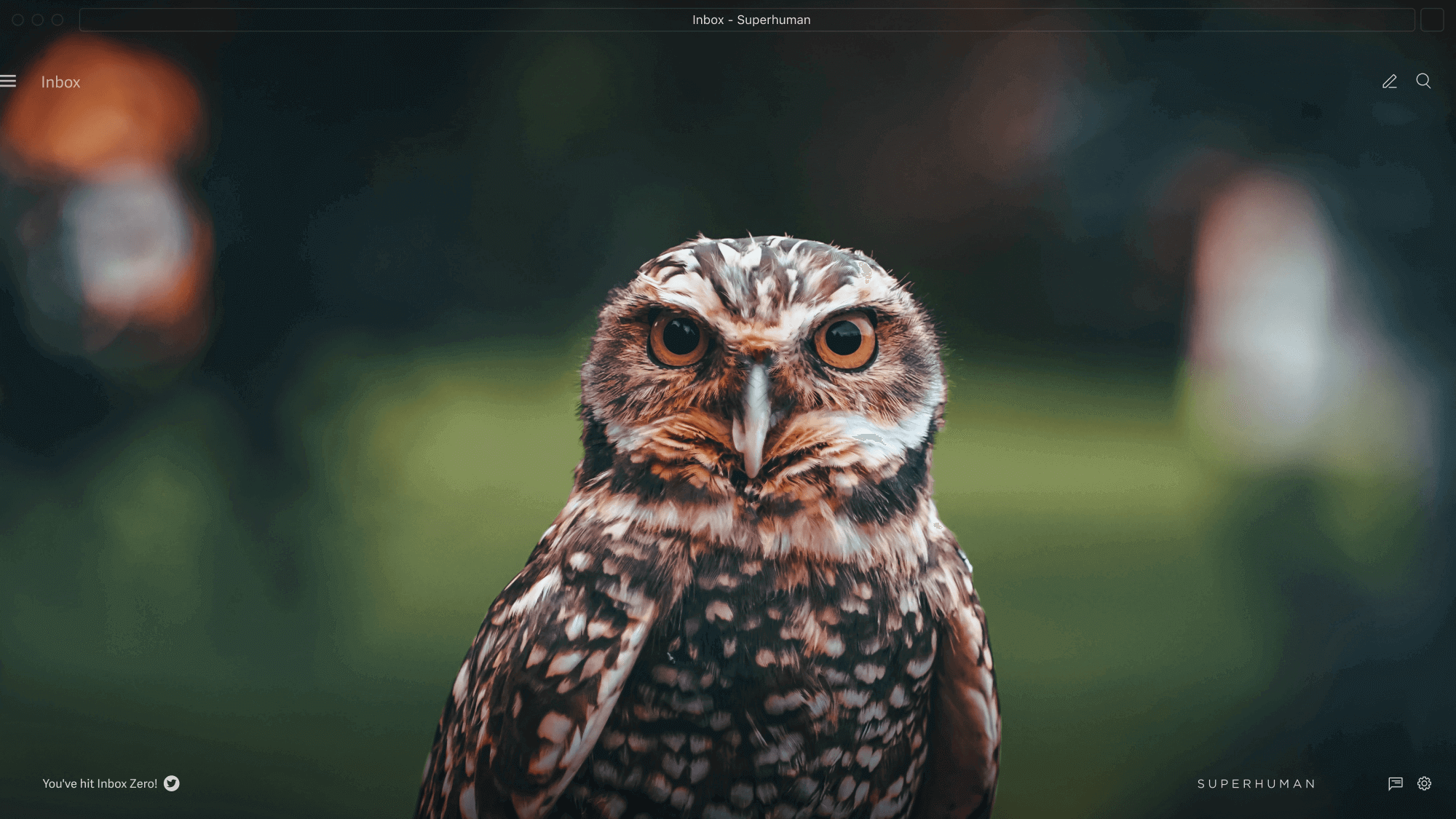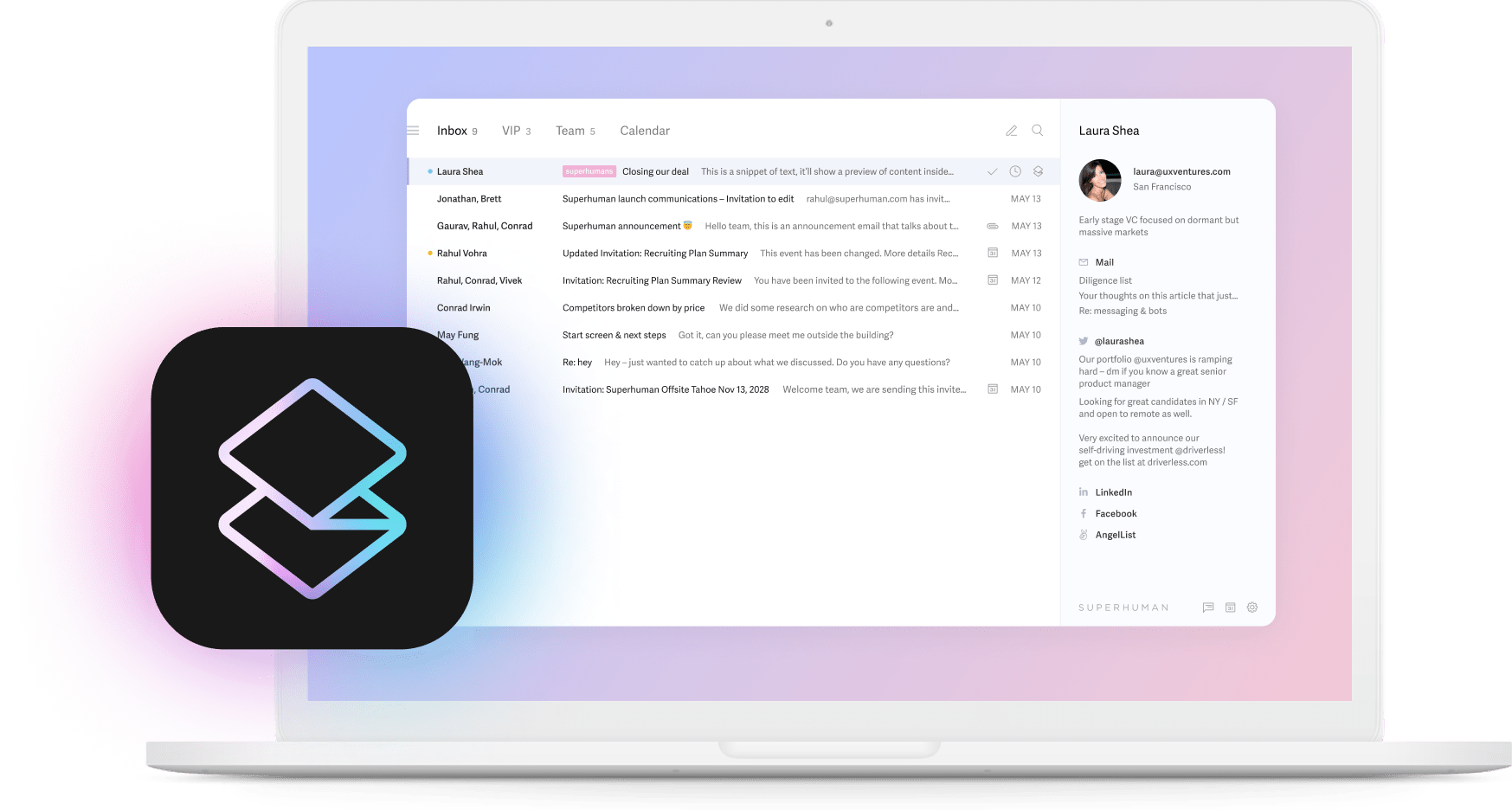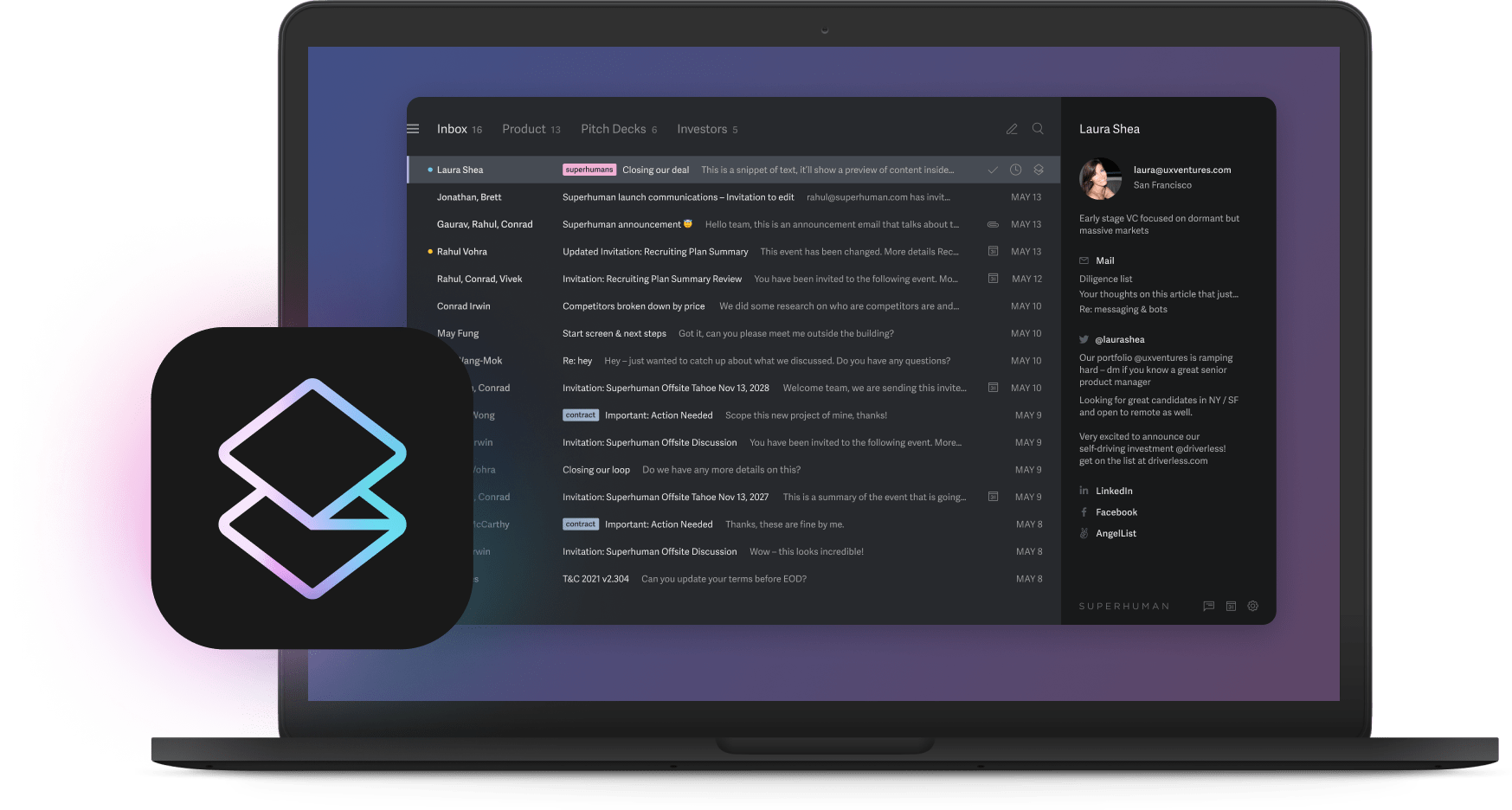
Leonardo Da Vinci painted the Mona Lisa and pioneered scientific studies of human anatomy. Hedy Lamarr invented technology that inspired GPS and became a famous movie star. Bo Jackson was an all-star MLB outfielder and an all-star NFL running back.
Of course, these are all exceptional examples of multi-talented people. But they all buck against the prevailing notion that you have to specialize in one thing. Or that being a jack of all trades means you have to be a master of none.
Why not a master of many?
There's a word for that: a polymath (from the Greek polumathēs, which means "having learned much"). And while the winding path to becoming one can be arduous, it's also an exhilarating way to discover new passions while garnering the range of skills fit for an ever-changing world.
Because a polymath is someone who cultivates deep knowledge or expertise over a broad array of topics. You don't need to be a world-renowned chemist slash cellist slash poet laureate. But you do need to love learning enough to vigorously pursue it across different disciplines.
Is that time well spent in lieu of deep specialization? It's up to you to decide, but we'll break down what each path has to offer here.
Why become a polymath?
We understand if you're resistant to the idea of learning so much about… so much. You may have been told that you need to focus on one primary pursuit, start learning it early, and then log countless hours (maybe 10,000?) of intense practice to get good at it.
Because of this, you may also worry it's hard enough to master one thing, let alone several. That said, a broader approach to learning across different areas comes with unparalleled advantages.
Innovative thinking
The pick-and-stick method of specializing in one skill goes against the grain of how the world actually works: it's just as complex as it is interconnected. Since polymaths draw from multiple fields of knowledge, they can see those connections and game out creative solutions to longstanding problems.
Specialists rely on narrower frames of reference, and therefore latch onto black-and-white solutions to problems that are often gray — flush with unwieldy contradictions. When you have a broader exposure, you can accept those contradictions, which paves the way for more creative, bigger-picture thinking.
This isn't just conjecture. A Michigan State study looked at past winners of the Nobel Prize for science and found that they were significantly likelier to have artistic avocations (meaning a hobby or side gig) than the general public.
What's more, in his book, Range, journalist David Epstein found that, compared to other scientists, Nobel laureates were 22 times more likely to dabble in acting, dancing, magic, or some other performance art. If you explore topics outside of your comfort zone, you don't diminish knowledge in your area of expertise. You enhance it.
Skills for tomorrow
The more well-rounded you are, the more transferable skills you're likely to have, which are becoming increasingly vital to meet new challenges and bolster your chances of landing that next job.
Think about generalists who, through studying across disciplines, became adept researchers, communicators, team players, and administrators. They'd be well-suited for any management job, whether it's for overseeing statisticians, counselors, or statistician-counselor-robots 30 years from now.
What's more, research has shown that hiring managers prefer candidates with a diverse range of skills. One study looked at 400 MBA school graduates and found that students who narrowly specialized in investment banking received lower signing bonuses and got fewer job offers than students with broader experiences.
The same preference for well-roundedness also holds true in medicine. The med school admissions rate is higher for humanities majors (50%) than STEM majors (40%). Also, according to one study, non-science majors are better equipped to handle the interpersonal aspects of medical care (like empathy, adaptability, and emotional resilience), and are less susceptible to burnout.
Learning how to learn
In their pursuit of knowledge across different fields, polymaths are able to connect the dots between disparate ideas, which helps them become better critical thinkers. Generalists thrive in "wicked" learning environments, or instances where patterns are trickier to recognize and feedback isn't always accurate. Since these dynamic situations are commonly found in modern life, people with broader skill sets have an easier time problem-solving than devoted specialists, which paves way for new breakthroughs in thinking.


But wait… aren't we supposed to specialize?
As mentioned, becoming a polymath runs counter to conventional wisdom about how to structure your life and career. And deep specialization certainly has its advantages.
The Adam Smith school of economics says pick and stick
The founding father of modern economics famously thought you should pick a task, get great at it through repetition, and then become an engine of productivity in your narrow field so you can trade with others who are experts in separate fields. Rather than everyone trying to do everything, Smith argued specialization creates a division of labor and allows for a more efficient production of all kinds of goods and services, which, by turn, raises our collective standard of living.
It takes time to become deeply skilled or knowledgeable
Another common pro-specialist, anti-generalist/polymath refrain is that there's always a tradeoff between breadth and depth. When you try to learn about multiple subjects, the argument goes, you're sacrificing the time needed to become a true expert in any one area… and vice versa.
And it does take a while — a long while — to get really good at something. Malcolm Gladwell popularized the theory that it takes 10,000 hours of practice to achieve mastery over a complex skill or material. While multiple studies have cast doubt upon that theory, there's an undeniable correlation between hours spent practicing a task and how good you become at it. It's why classical composers often take a decade-plus to create their greatest pieces of music and why Olympic swimmer Katie Ledecky hits the pool ten times a week.
Trusted thought leadership
Specializing in one area often means others will trust your expertise, which bolsters your chances of becoming a recognized thought leader in your field. This, in turn, can improve your career prospects and maybe even pave the way for earning more. Just thinking anecdotally, you'd probably want a neurologist to look at your brain scan more than a general medicine doctor.
The polymath advantage
You'll often hear the term "polymath" used interchangeably with "generalist". And while they both imply a broad skill set, the beauty of becoming a polymath is that you can still reap the benefits of specialization while cultivating deep knowledge of new interests. And there are two big reasons why you may want to avoid only focusing on one field.
Threats of automation
In the not-so-distant future, it'll help to have a refined set of diverse skills. Why? because automation may soon exceed human efficiency on repetitive tasks. McKinsey Global Institute recently projected that by 2030, up to 14% of workers might need to change jobs. What's more, in about 60% of occupations, at least one-third of activities could be automated. While specialization once brought about competitive economic advantages, it could soon make your job more easily replaceable by artificial intelligence.
Of course, specialization will still always have its place. But if you're confined to just one field, you'll be less equipped to embrace the smorgasbord of skills needed for jobs that don't even exist yet.
While humans will be no match for machines at repetitive tasks (we're already well past the point of a computer beating a grandmaster in chess), AI will have a much tricker time catching up with humans when it comes to critical thinking, and drawing on a kaleidoscope of knowledge to creatively solve complex, specific problems.
Experts are lousy predictors of the future
Rigid specialization has another bug, one that may surprise you: experts are awful at forecasting future events.
In a famous 20-year study, a psychology researcher named Philip Tetlock collected more than 80,000 political and economic predictions from 284 highly specialized experts. The results? Experts were exceptionally bad at both short and long-term forecasting, picking the right outcome less than a third of the time. Tetlock insisted that even though these people were paid for their expert opinion, they were no better at predicting the future than dart-throwing chimpanzees.
Tetlock called specialists hedgehogs, who knew "one big thing", and called generalists foxes, who knew "many little things", who "draw from an eclectic array of traditions, and accept ambiguity and contradiction".
He found that the foxes routinely forecasted better than hedgehogs, and that hedgehogs fared even worse as they gained more expertise. Why? Their myopic focus led to neat, black-and-white views of issues that were too sprawling to be looked at from a single lens.
Traits of polymaths
Now that you know the advantages polymaths can have over specialists (and even less deeply focused generalists), how can you decide if it's a worthy pursuit for you? First, you should take stock of the traits most polymaths have in common:
Love to learn
Modern polymaths are voracious readers, researchers, and explorers, on the constant prowl for new knowledge to accumulate. Do you have a growing stack of books on your nightstand? Are you constantly browsing online courses for new skills to pick up? Do you enjoy speaking with specialists about their areas of expertise? If so, you probably fit this bill.
Polymaths tend to read faster by learning to stop subvocalizing.
Autodidacts
While specialists often confine their pursuit of learning to one field, polymaths teach themselves new concepts, skills, and disciplines, even when it goes beyond the bounds of their formal education. This behavior usually starts in grade school. If you ever finished reading an assigned book and picked up another while the rest of your classmates were finishing up, or maybe applied a high school math lesson to an extracurricular chemistry problem, you're likely someone who enjoys being self-taught.
Know what you don’t know
Polymaths relentlessly pursue new concepts to learn and ask countless questions to challenge their assumptions. They also have the humility to recognize how long it takes to acquire deep mastery of any one topic. You don't necessarily want to be Will Hunting. Everything comes easy for him. You're likely much more concerned with the quest for knowledge than the destination itself.


How to become a polymath
On that last point: you don't take a test that wins you a polymath certification. Nor is it a designation that earns you membership to an exclusive polymathy club where you join the ranks with Albert Einstein and Aristotle.
Polymaths aren't (necessarily) modern day renaissance men and women. They're just strivers who pursue learning to make better sense of the world around them, in an attempt to become better, more well-rounded people. But that doesn't mean the average person turns into one just by… deciding to.
It's a circuitous, lifelong journey. Here's how to get started:
Cultivate diverse passions and interests
First things first: you need to decide which topics to explore. You may already have a primary vocation and want new hobbies to pick up. Or maybe you're a lifelong dabbler looking for a few different subjects to finally get serious about.
Regardless, it's always helpful to think about topics that excite you. A good frame of reference is your childhood. What were you into back then? No matter how trivial the answer is — be it drawing pictures or tigers or listening to music in a car with the windows rolled down — let that experience guide you. In The Atlantic, Charlie Warzel and Anne Helen Peterson wrote about how to let those experiences inform adult passions:
"Once you figure out what that thing is, see if you can recall its contours. Were you in charge? Were there achievable goals or no goals at all? Did you do it alone or with others? Was it something that really felt as if it was yours, not your siblings’? Did it mean regular time spent with someone you liked? Did it involve organizing, creating, practicing, following patterns, or collaborating? See if you can describe, out loud or in writing, what you did and why you loved it. Now see if there’s anything at all that resembles that experience in your life today."
Of course, this is also the time to step out of your comfort zone and explore topics you may not be as exposed to. Once you feel like something is resonating, you may be able to find a theme that links new interests with older ones.
Lay out your goals
Even though polymaths value the pursuit of knowledge as much as the endgame of acquiring it, you still need a roadmap for where you're headed. Start by asking questions about your why. Do you want to learn something new to get good enough to monetize it? Or are you just interested in learning something, and your competency isn't as important?
Next, think about your timeline. We all have big-picture goals of everything we want to learn in our lifetime, and then shorter-term goals you can periodically check in with yourself about to monitor progress. Consider using SMART (specific, measurable, attainable, relevant, time-bound) goals to make your plans concrete. You can also try apps that help you get things done. Anything you can do to bring your aspirations out of your brain and onto paper helps.
Practice — without worrying about perfection
Whether trying to learn a new concept or new skill, you need to drill yourself. First, scavenge for information. Visit your local library, peruse online courses and YouTube channels, listen to audiobooks or podcasts while you do the dishes.
Once you've accumulated some resources, it's time to practice. And while it's important to be disciplined, it's just as important to be gentle with yourself. Because screwing up — whether you're not getting a chord progression right or struggling to balance a chemical equation — is not only part of the process. It's how you learn how to do better next time.
Because becoming a polymath doesn't mean being perfect at a dozen things. It doesn't even mean being a "master" across disciplines. You just need to learn and practice enough to nurture deep knowledge about different domains.
How much knowledge is deep knowledge? It's purposefully vague, but you want to strive for an above average command of the field, and hopefully know enough to confidently teach it to someone eager to learn more about it.
Keep in mind that you don’t need to know everything in your field to be an expert. For instance, someone who knows the 1,000 most common Chinese characters already has a 90% understanding of the Chinese language. When this is doubled to 2,000 characters, their knowledge of the language boosts to 97%. Learning twice as much for a 7% boost in knowledge? The tippy-top of that pyramid is rarefied air, but if you're even near the top, you're head and shoulders above the rest.
Since you only have so much time, you may want to forgo elite mastery in one thing for above average knowledge of a few things. Being "pretty great" at a lot of things isn't necessarily better than becoming "exceptional" at just a few, but it does give you the opportunity to spread your interests out more.
Find mentors
Even if you're introverted and self-taught, nobody learns everything they want to know about a topic all by themselves. And the beauty of experts: they want to talk about their passions! Whether it's through friends, colleagues, LinkedIn, or wherever else, find people just as interested in a topic as you are, and learn about where their mastery came from. It's always helpful to cultivate relationships outside of your main area of focus, as these looser connections can prove valuable down the line.
Even if you don't get to speak with them one-on-one, research their backstory to find what you can emulate. Maria Montessori was an early education pioneer. But first, she went to med school. Donald Glover was in a college sketch comedy troupe long before he made a funk album. Ask yourself: who are my favorite polymaths and what can I learn from their hodgepodge of experiences?
Develop a feedback loop
Take it from Benjamin Franklin, one of America's founding polymaths who helped draft the Declaration of Independence and invented bifocals. He structured his day so that in the morning, he established what he wanted to accomplish and before bed, asked himself whether he got it done, as a means of measuring his self improvement.
Setting goals is one thing, but you need a structure in place to ensure you're fulfilling them. Remember to always try and update what you've learned, track your progress at every step, and update your plans as you progress so you can get as close to mastering a subject as possible.
Specialists vs. polymaths: deciding which path is best for you
Whether gaming out the next step for your career or envisioning a more fulfilling life for yourself, you may feel like you're at an impasse. Should you double down on learning more about what you know? Or should you commit to learning a lot about a new field that interests you?
There's no shame in either route. But they're not mutually exclusive. If you embrace the polymath mindset, you can specialize deeply in more than one thing, while following the directions your curiosity takes you and developing new skills.
As long as you're committed to teaching yourself new things, learning from experts outside your sphere of influence, and practicing while embracing imperfection, you can reap the benefits of the fox and the hedgehog. This, obviously, isn't always easy. But most other worthwhile pursuits aren't, either.
Bridging the gap between breadth and depth
One of the biggest barriers to learning new things is time. It's finite. And fleeting. But there are always opportunities for minimizing distraction, increasing focus, and learning things quicker but just as extensively.
One of those opportunities lies in streamlining your email. You could spend hours a day on it, or blaze through your inbox in 20 minutes with powerful software like Superhuman. The time saved gives you breathing space to learn, be curious, and expand your zones of genius — whether you're a specialist or generalist.
Sign up for Superhuman today and see how a cleaner inbox can help you embrace the traits of a polymath.
Get started with Superhuman

